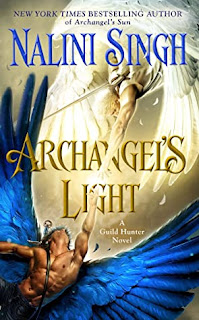It’s time to look back at what I’ve read
this year. I made an ambitious reading list in January and pledged to read
eighty-five books, which I later changed to ninety-five books and eventually to
an even hundred. It’s going to be close; as I write this, there’s three days
left of the year and I’m a book short of the goal. But I’m confident that I can
make it—a new personal best.
In truth, I haven’t actually finished reading all the books Goodreads has marked as read towards my reading goal. There were ten books I’d downloaded from NetGalley that I didn’t finish, but I wrote reviews of them anyway, stating why the books weren’t for me. Still, ninety books read is pretty good for me. I wrote seventy-one posts on my reading blog, and a couple of reviews that only appear on Goodreads, mainly because they were too short for proper posts.
I mostly ignored the reading list I made. It’s more a guideline anyway. Majority of my reading was provided by NetGalley—I really have to stop requesting so many books—and there were several new books that I spotted after composing the list that I absolutely had to read. A couple of times I was granted a book by NetGalley that was a second in a series and I had to read the first book before getting to that one, which hadn’t been on my list.
In general, I managed to request interesting
books from NetGalley. The first two books in Rook & Rose trilogy by M. A.
Carrick, The Mask of Mirrors and The Liar’s Knot, were imaginative fantasy with
great characters and intriguing plots. The Last Watch and The Exiled Fleet by J. S.
Dewes, the first two books in The Divide sci-fi series, were exciting and
well-written.
I absolutely loved She Who Became the Sun by Shelley Parker Chan, a start of historical fantasy set in ancient China; The Witness for the Dead by Katherine Addison, a sequel to The Goblin Emperor with a different main character and setting, but equally delightful; The Black Water Sister by Zen Cho, magical realism set in Malaysia; and Six Crimson Cranes by Elizabeth Lim, a retelling of an old Grimm fairy tale. There were other interesting books as well, like Purgatory Mount by Adam Roberts and Tower of Mud and Straw by Yaroslav Barsukov. All in all, I read seventy-one books from NetGalley, and I discovered several new favourite authors.
The other thirty or so books were mostly those by my old and new favourites. I read six books by T. Kingfisher, one of my new favourite romantic fantasy authors—though my favourite book of hers this year, A Wizard’s Guide to Defensive Baking, is meant for younger readers. Previous year’s stable, Lindsay Buroker, only features three times this year, because I simply didn’t have room for the prolific author. I’ll try to catch up next year. Old friends, Martha Wells, Nalini Singh and Penny Reid each had at least three books on my list this year, and all were great.
I mostly read fantasy in one form or another. There was historical fantasy like Scales and Sensibility by Stephanie Burgis, Gunnie Rose alt-history series by Charlaine Harris, urban fantasy by several authors, romantic fantasy, and your regular fantasy with an epic hero trying to save the world against their better judgement. Twenty books were sci-fi, and the rest were more contemporary, both romance and crime—or a combination of the two. And I read a great many romantic books in all forms.
The first book I read this year was Clockwork Boys by T. Kingfisher and I’ll finish the year with Beauty and the Mustache by Penny Reid, both excellent holiday reads. All in all, I’m happy with my reading year. I read many authors I wouldn’t have learned about if it weren’t for the NetGalley, and my favourite authors kept providing strong contenders for my attention. And next year’s list is already planned. But more about that in my next post.




























